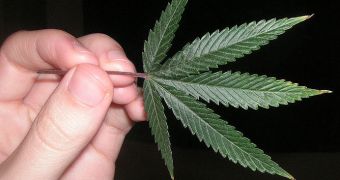A
ccording to experts, a novel instrument that can detect whether a person has consumed cannabis or cocaine may be made available to police officers and concerned moms around the world within 2 years.
The disposable test would be very cheap and affordable, with initial cost estimates placing it at as little as $2. It was developed by British scientists, with the purpose of making drug testing easier.
At this point, determining whether someone used illicit drugs is a rather complex process, which involves a lot of waiting time until lab results come in.
But the new device could produce results within only 5 minutes. All it needs is a droplet of saliva from the person undergoing the tests and it's good to go.
The researchers were actually bent on giving policemen around the country the ability to perform road-side drug tests, to determine whether suspicious drivers were at the wheel while intoxicated.
But a new application has immediately sprung up as well, as mothers realized they could use it to test whether their children ingested drugs before coming home.
The Vantix sensor was developed by the UK company Universal Sensors. According to representative Kevin Auton, the devices appeared simply because there was a demand for them.
He says that everyone at the company is fully aware of the fact that their device will cause a lot of stir and controversy, but adds that a market exists for such sensors.
“In America, parents are taking samples of their children's saliva and hair and sending them off to labs to see if their children are taking drugs,” Auton reveals.
“If there is demand for it here, it would be an interesting market. It is controversial but the test can be used in the home for worried parents to test if their children are taking drugs,” he goes on to say.
“We are very focused on getting the test out of the laboratory and on to other platforms. It is as simple to use as a pregnancy test,” he argues, saying that one of the main reasons police officers miss drug drivers is that they avoid performing complex and time-consuming toxicological tests.
The sensor would use biological markers to determine drug use. The chip would for example contain specific antibodies that bind to THC (tetrahydrocannabinol), the active compound in marijuana.
“I'm not sure if parents are ready in this country and the test raises privacy issues,” Auton concludes, quoted by the Daily Mail.

 14 DAY TRIAL //
14 DAY TRIAL //